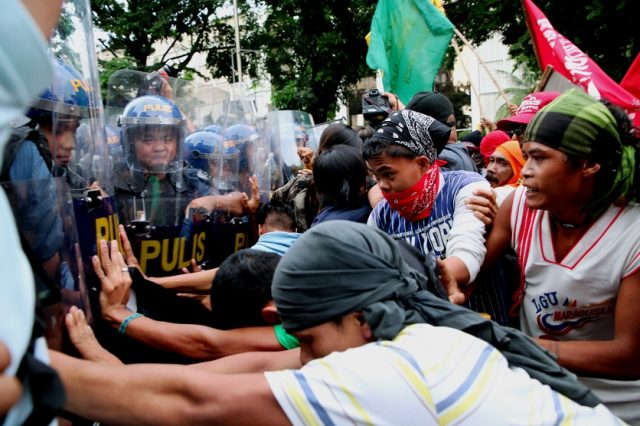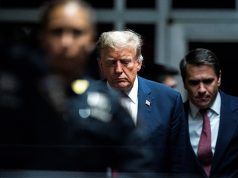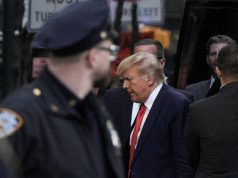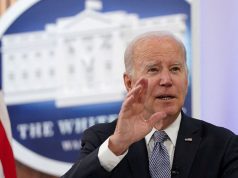MANILA, Philippines — Lumad and Moro activists protesting the visit of President Donald Trump scuffled briefly with police but failed to breach the law enforcers’ phalanx and reach their target, the U.S. embassy.
Trump is flying in for the Association of Southeast Asian Nations summit and is expected to hold talks with President Rodrigo Duterte.
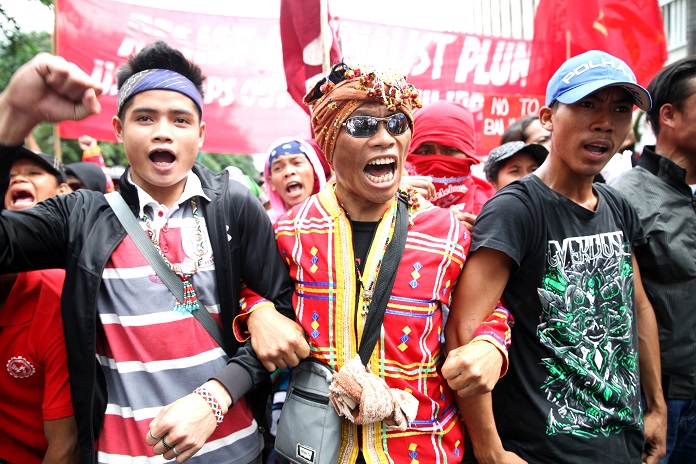
The protesters, numbering at least 200, were stopped by anti-riot police along T.M. Kalaw Avenue, a few hundred meters from the embassy.
They vainly tried to shove, punch and kick their way past the police shields but had to content themselves with holding a short program capped by the burning of a portrait of Trump, which they defaced with red paint before setting it alight.
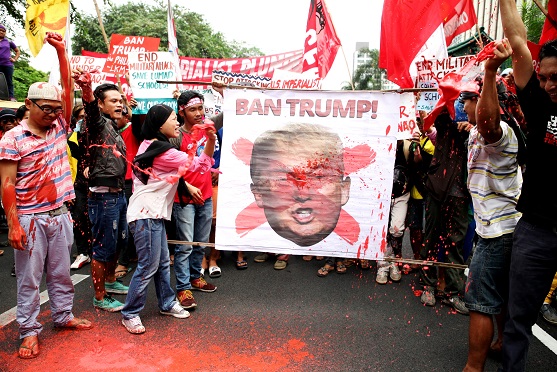
Ryan Lariba of the Bagong Alyansang Makabayan-Mindanao condemned the continued presence of American forces in the south, including during the recent Marawi crisis, and blamed the U.S. for the continued bombings of communities in the countryside “using the Armed Forcces and the puppetry of the Duterte administration.”
When fighting between government forces and extremist gunmen broke out in Marawi on May 23, Duterte declared the whole of Mindanao under martial law. He has since extended this to the end of the year, refusing to lift it even after declaring Marawi liberated.
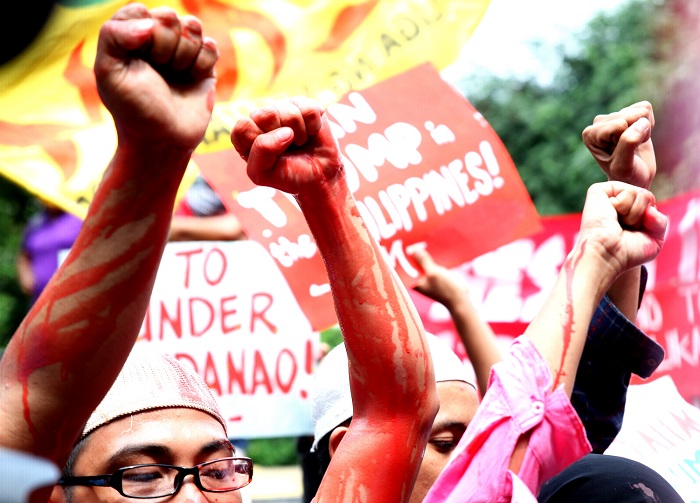
Lumad who joined the protest warned that agreements secured during the ASEAN summit could strengthen the continued destruction of the environment and their ancestral lands in Mindanao by mining corporations and agro-industrial plantations.
The lumad have long fought to keep out extractive industries from the resource-rich hinterlands where they live. Because of this, they have been openly accused of supporting communist rebels and have been targeted in counterinsurgency operations that often include the occupation of their communities and human rights violations.

